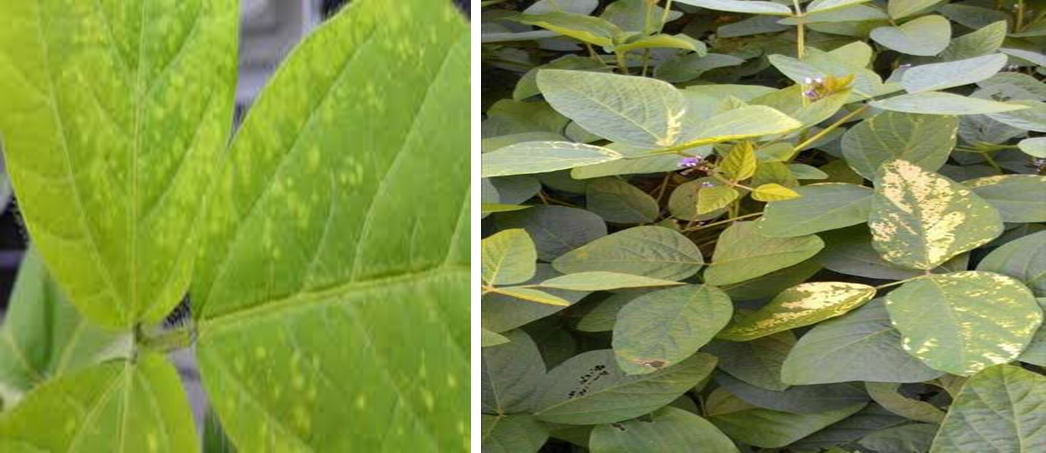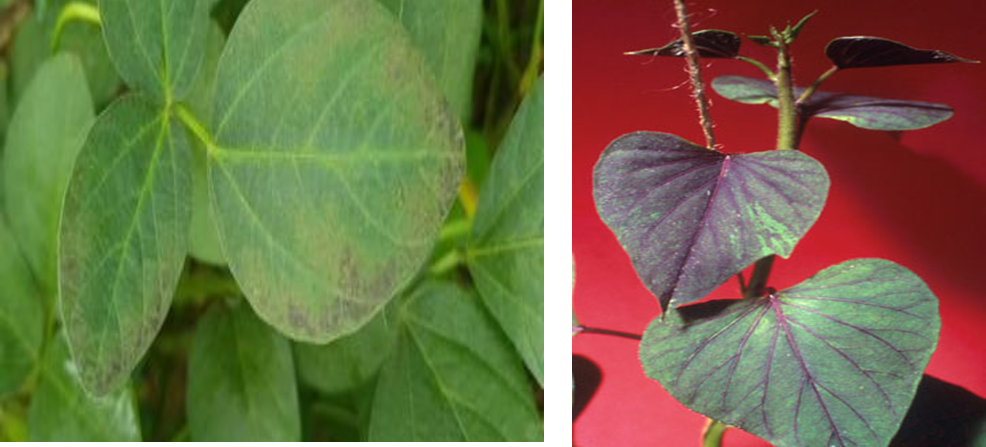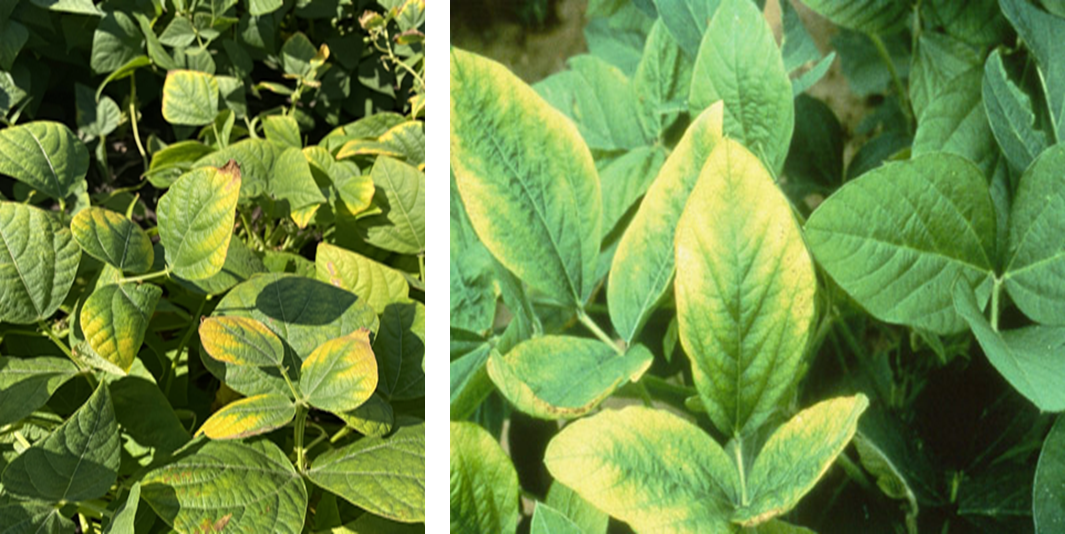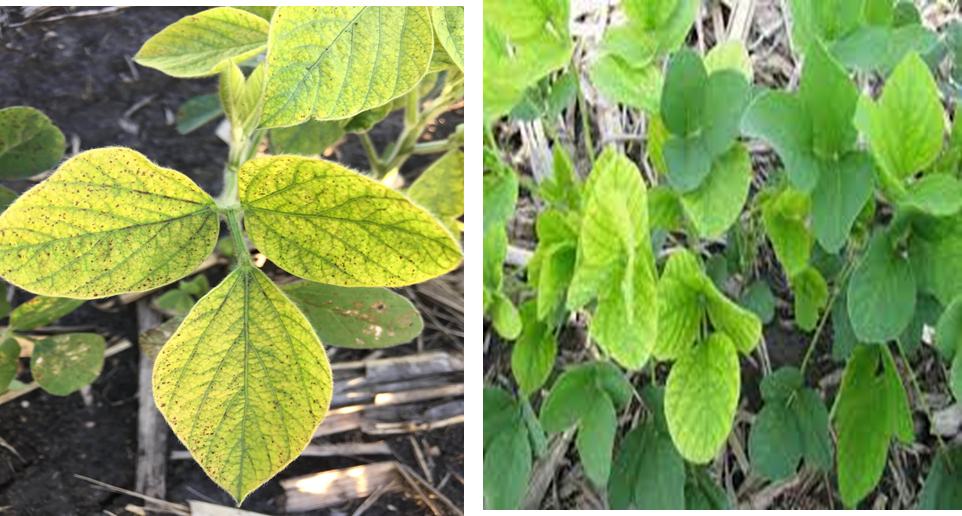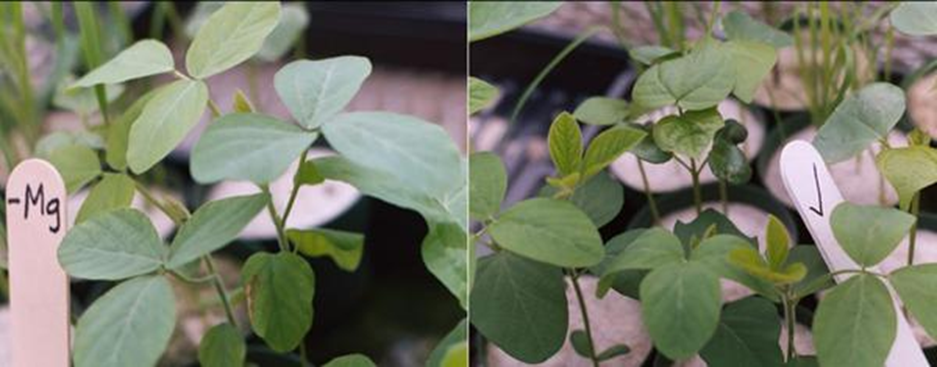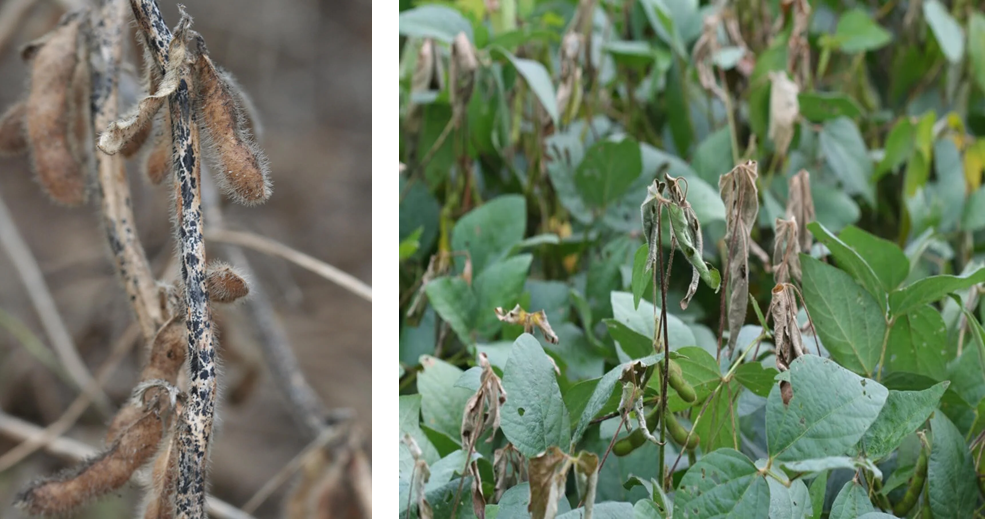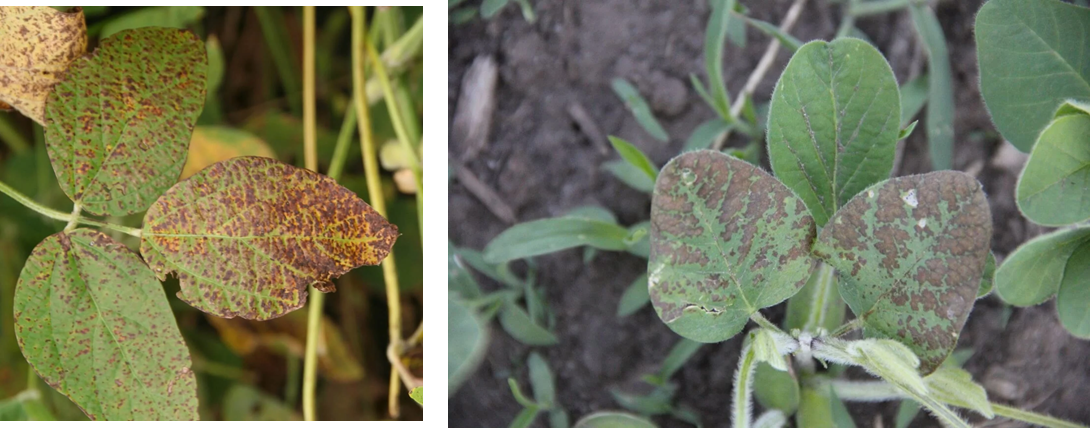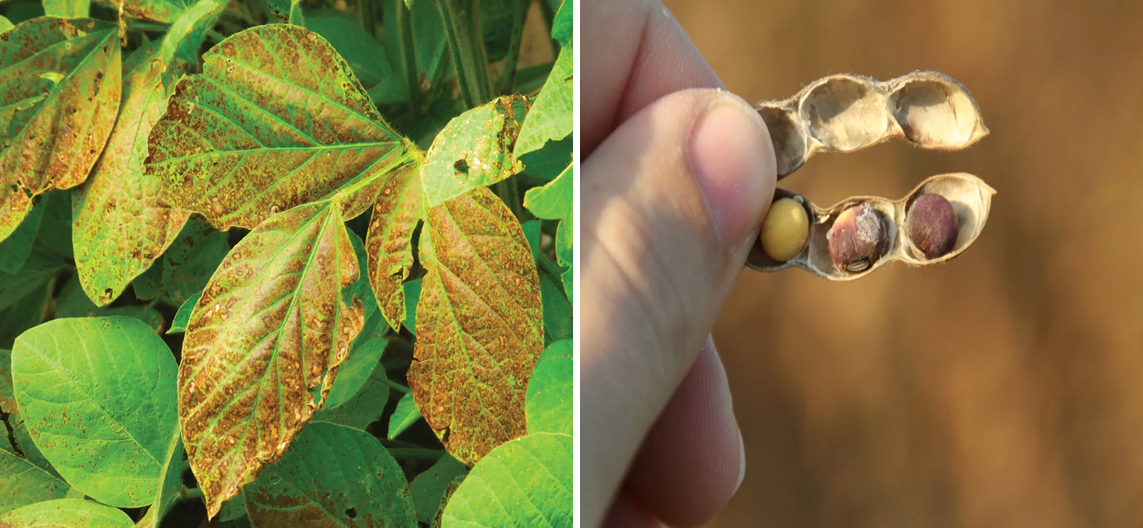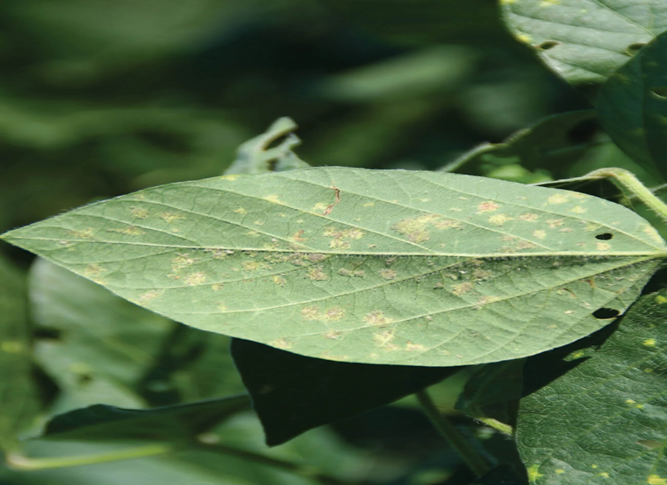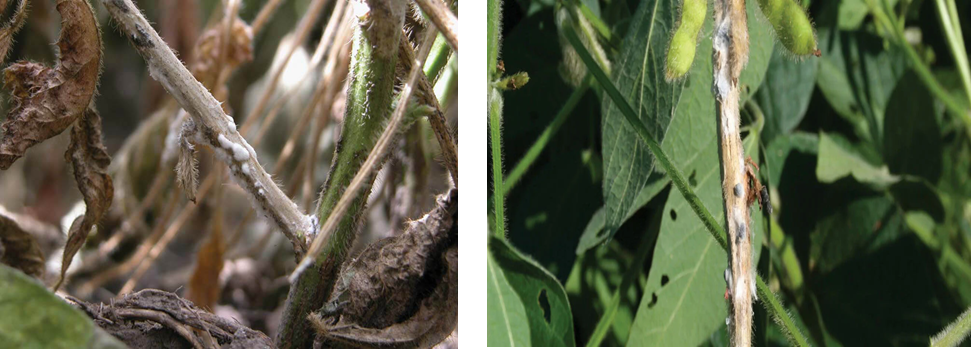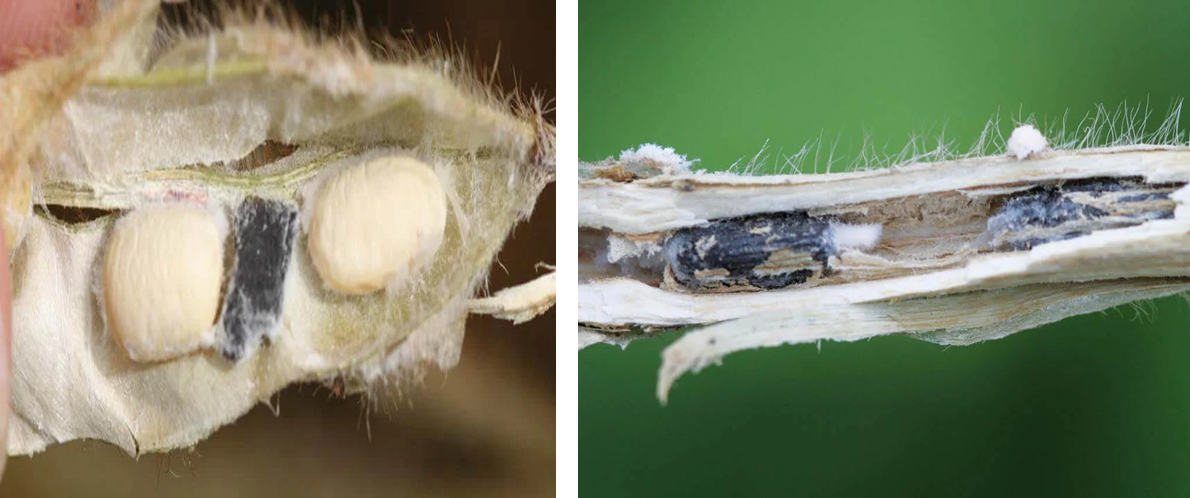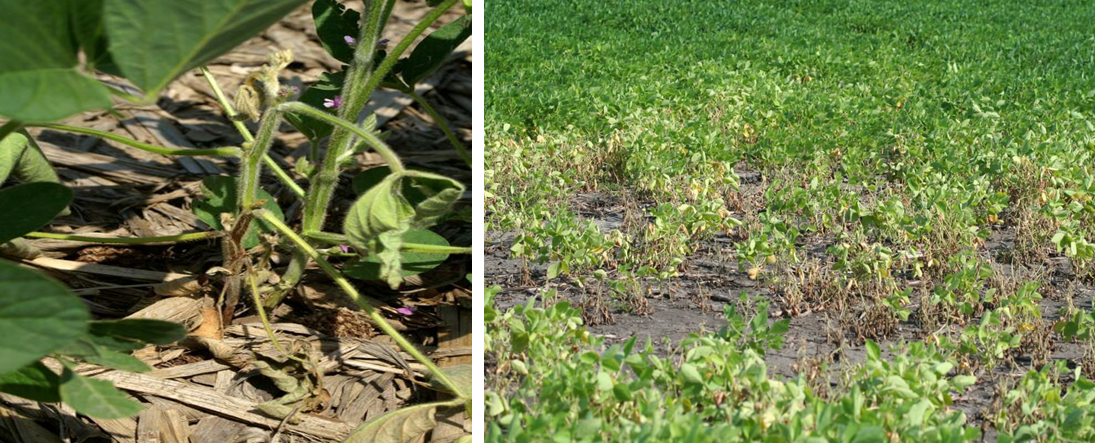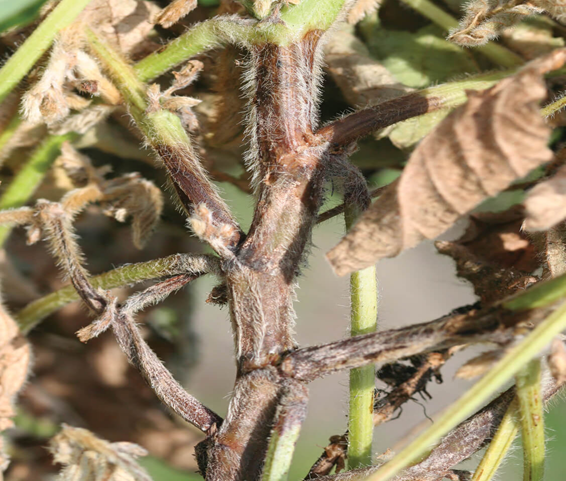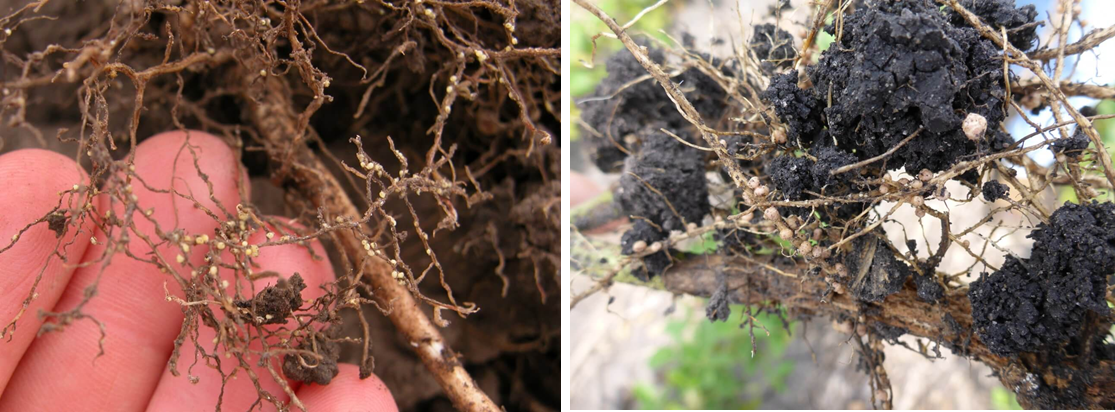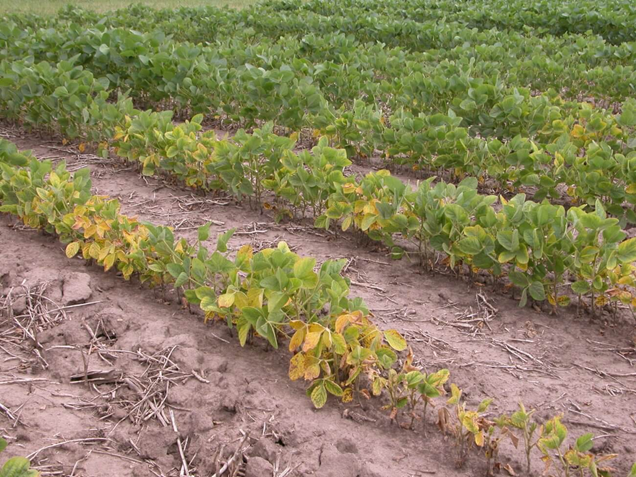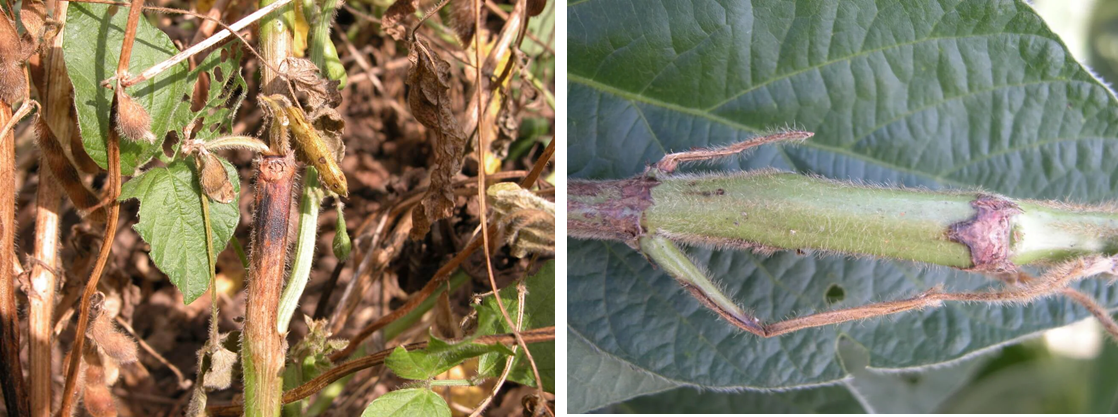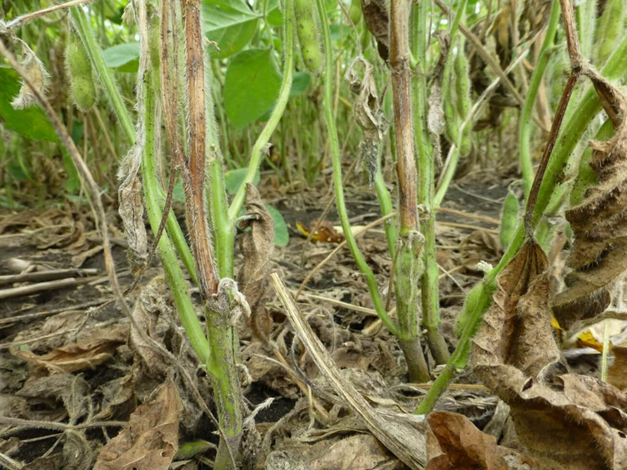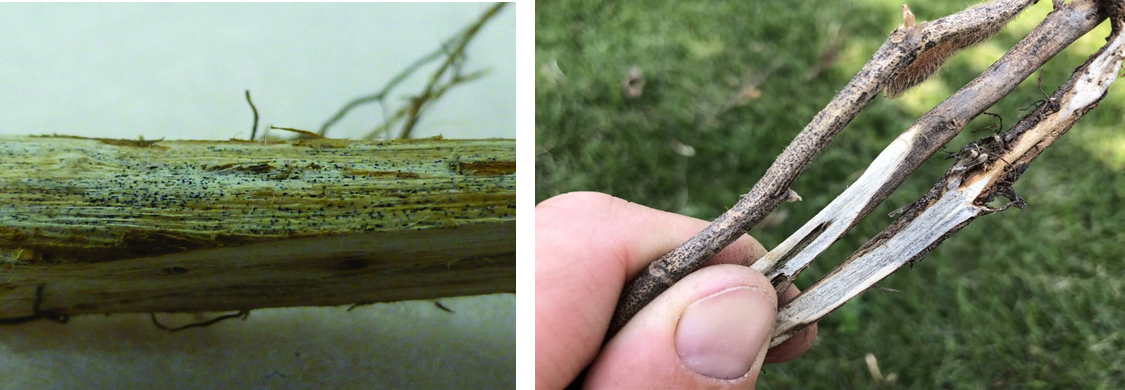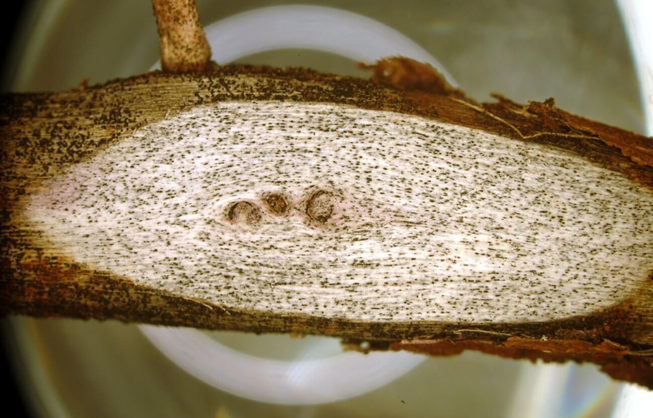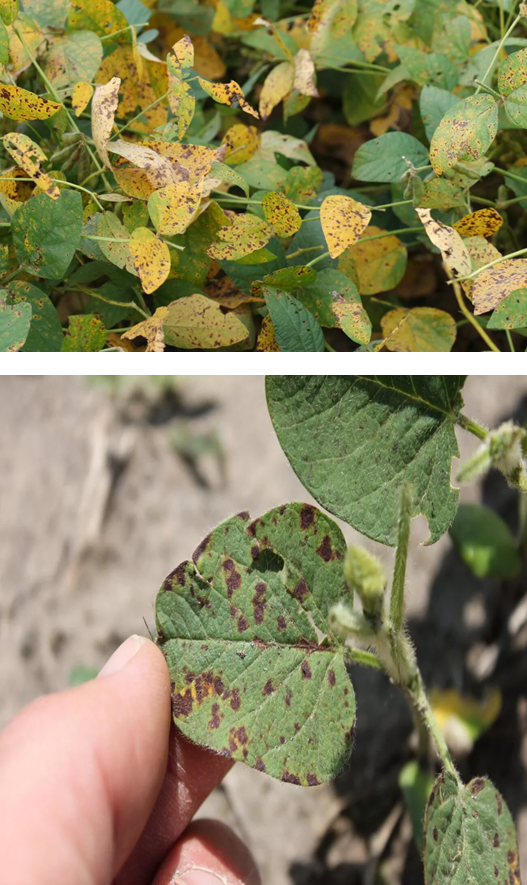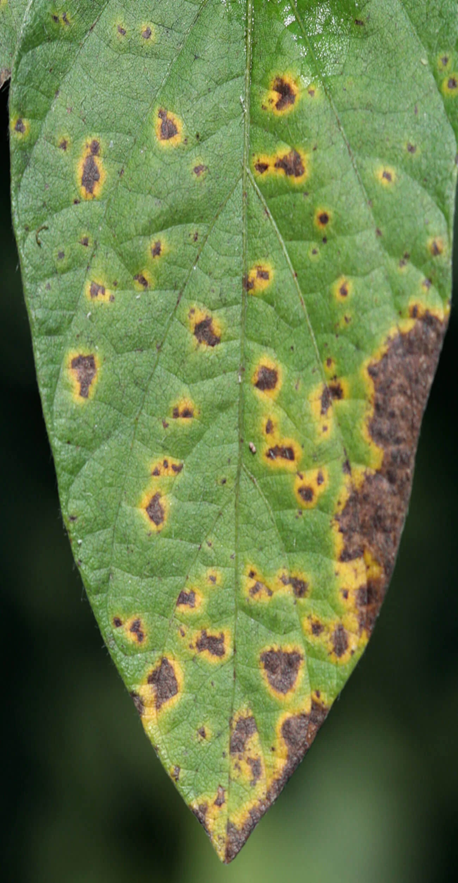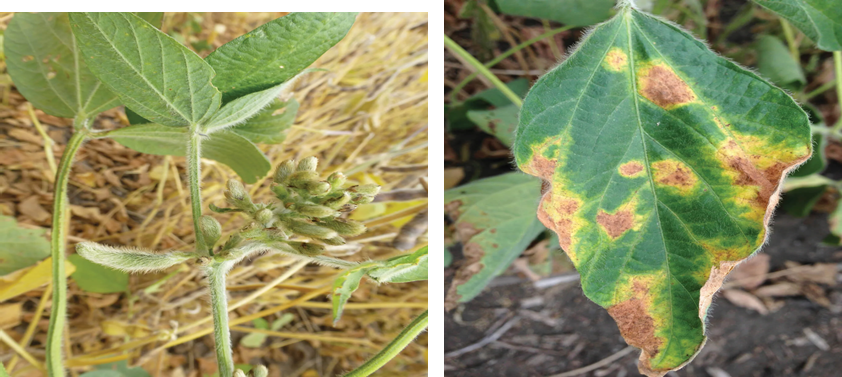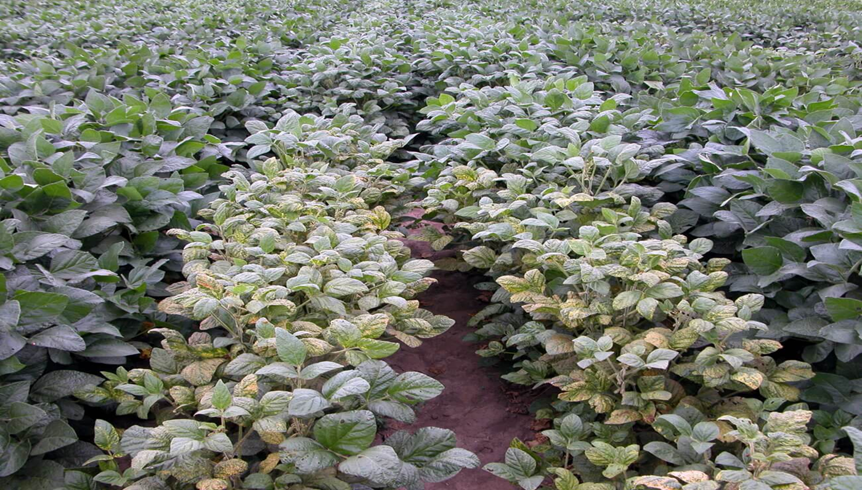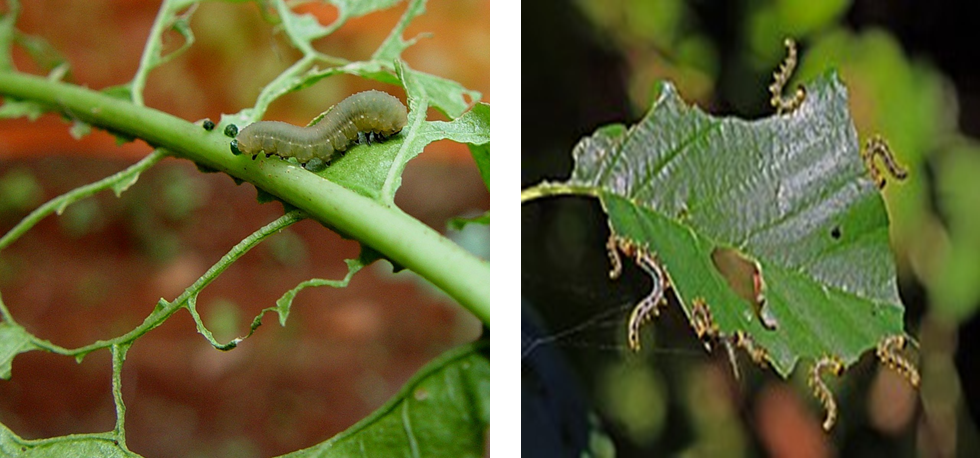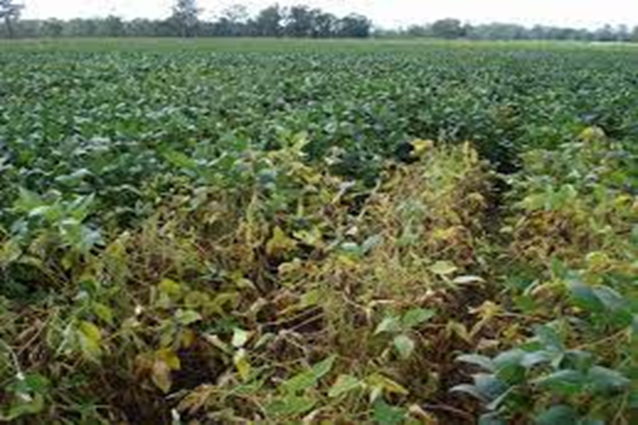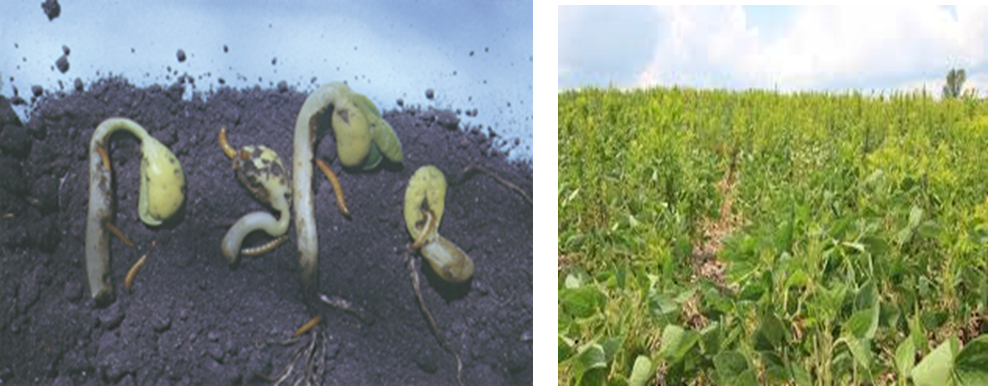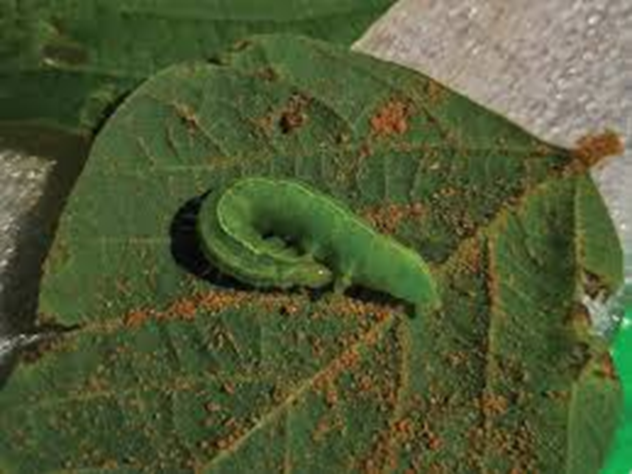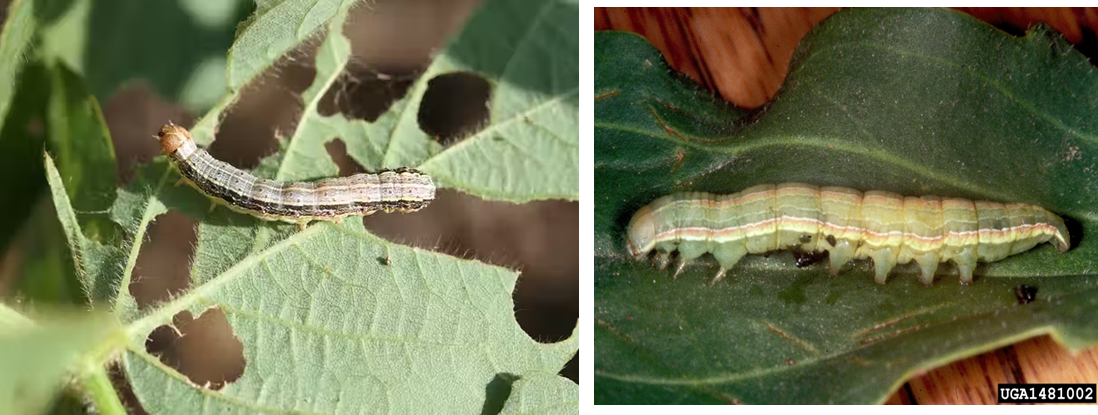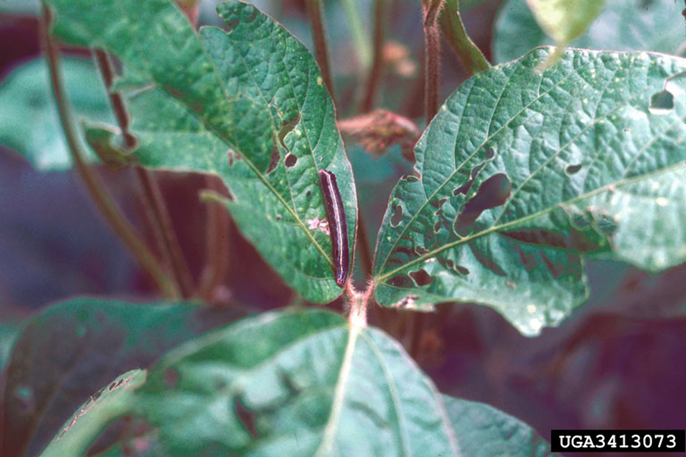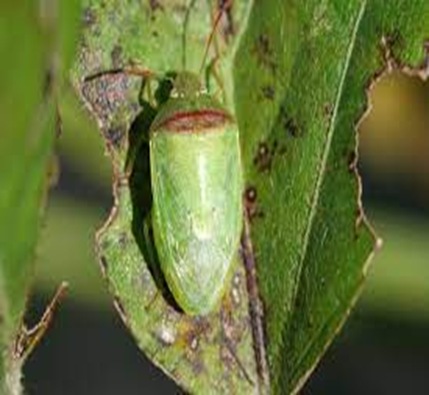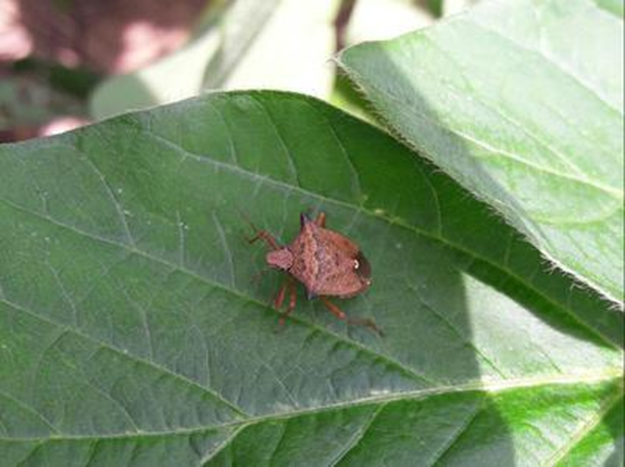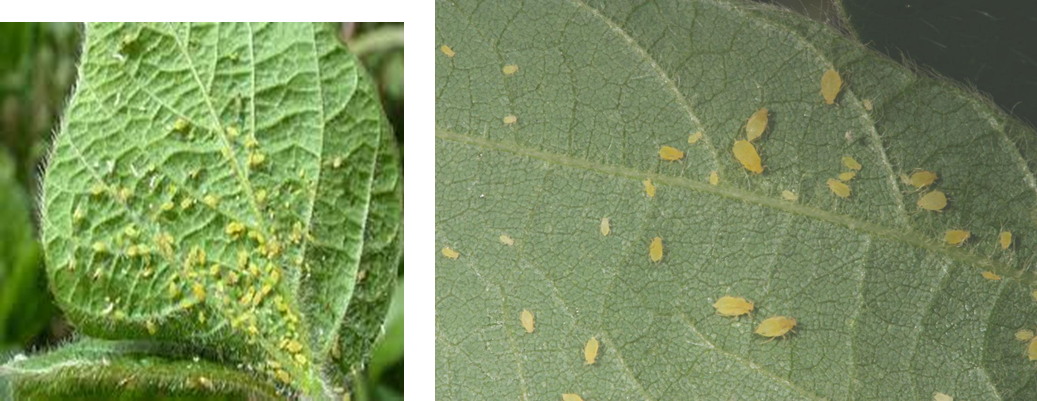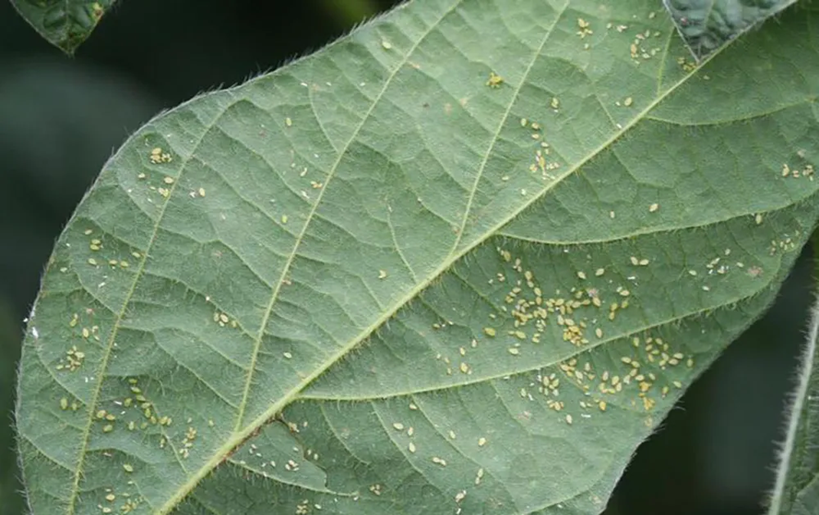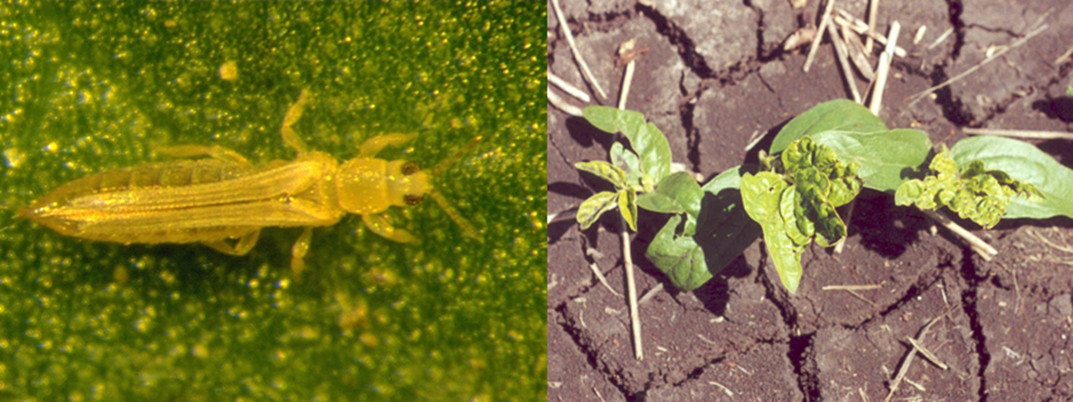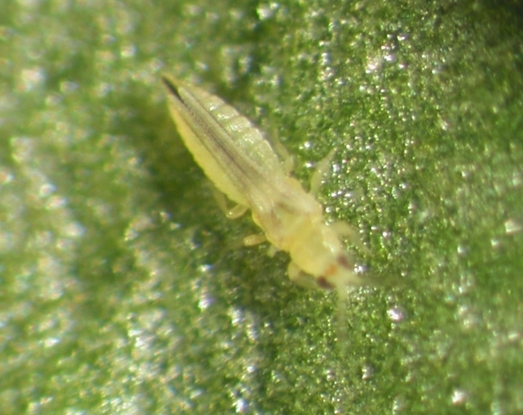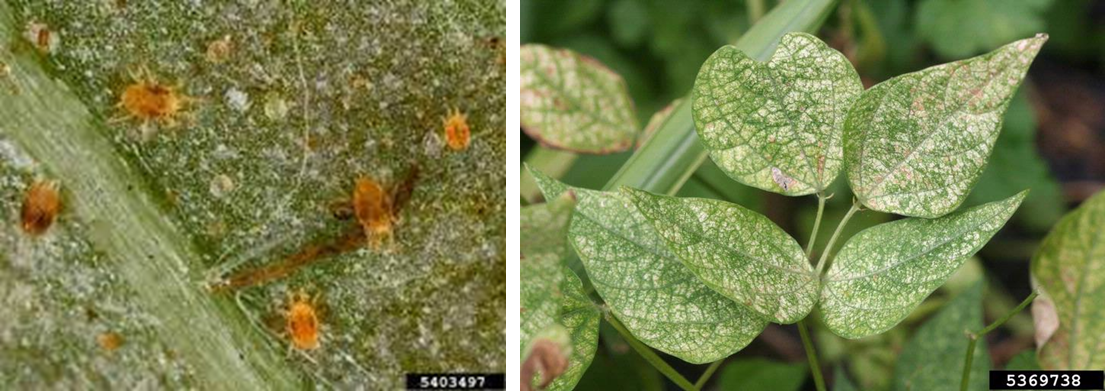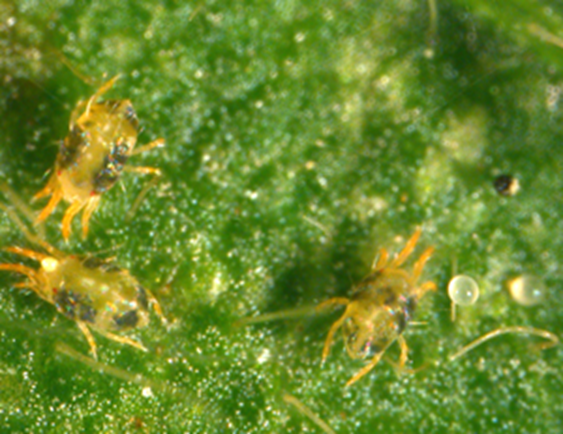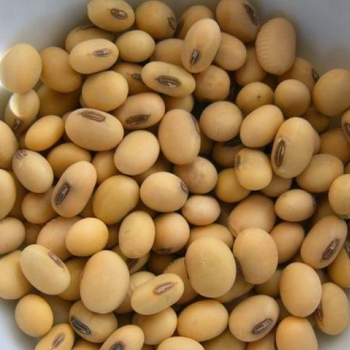
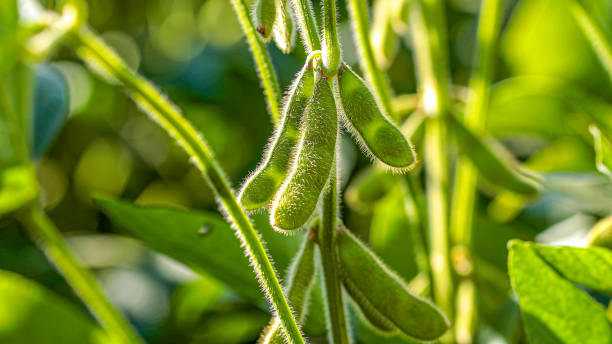
- Soybean (Glycine max), often known as soja bean or soya bean, is an edible seed from an annual legume in the pea family (Fabaceae).
- The soybean is the world's most commercially significant bean.
- providing vegetable protein to millions of people as well as components for hundreds of chemical goods.
CLIMATE : WARM AND MOIST CLIMATE
SOIL : LOAMY SOIL
pH : 6.5 - 7.5
DURATION ; 139 DAYS
FOR IRRIGATION :
Irrigate your field with Power Plant Bhoomi Power, Premium, and Root guard.
|
BHOOMI POWER 4KG/ACRE |
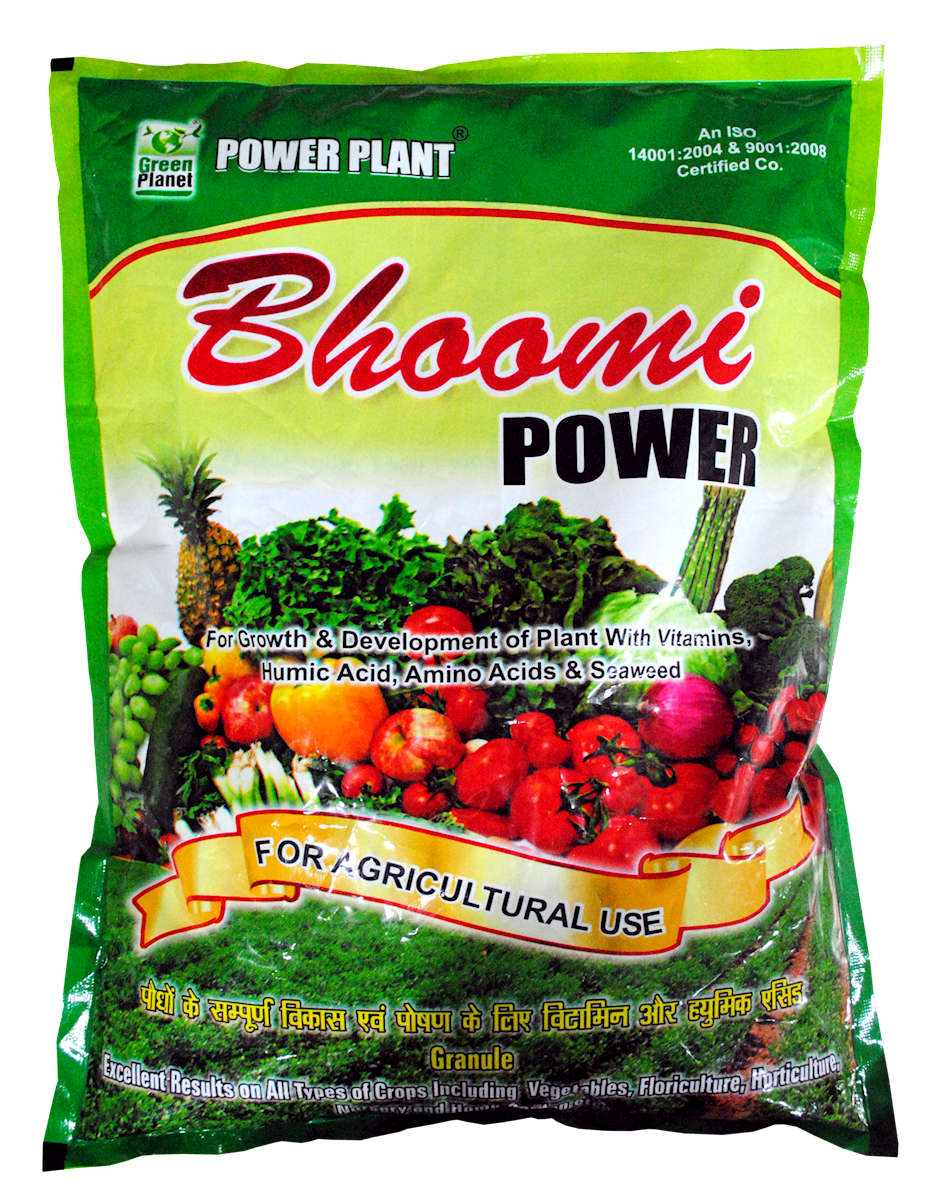 |
|
POWER PLANT PREMIUM 1 LITRE/ ACRE |
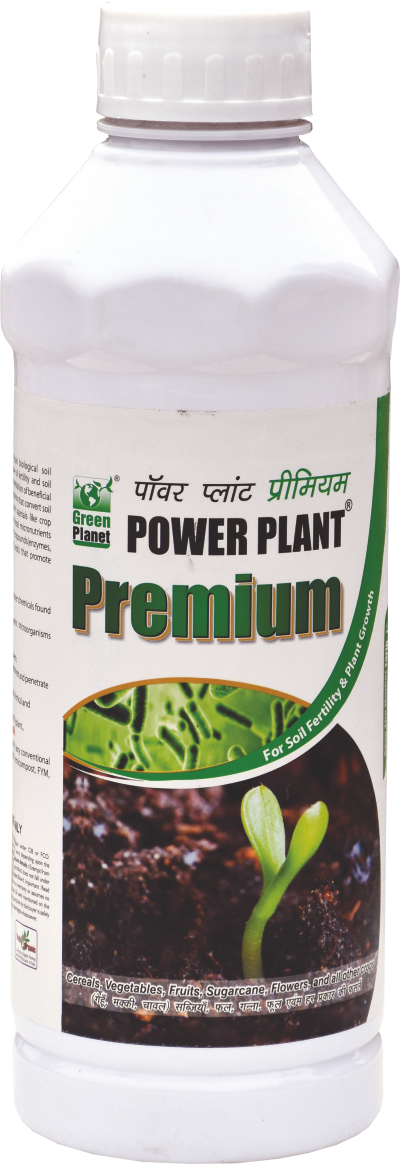 |
|
ROOT GUARD 2 KG/ACRE |
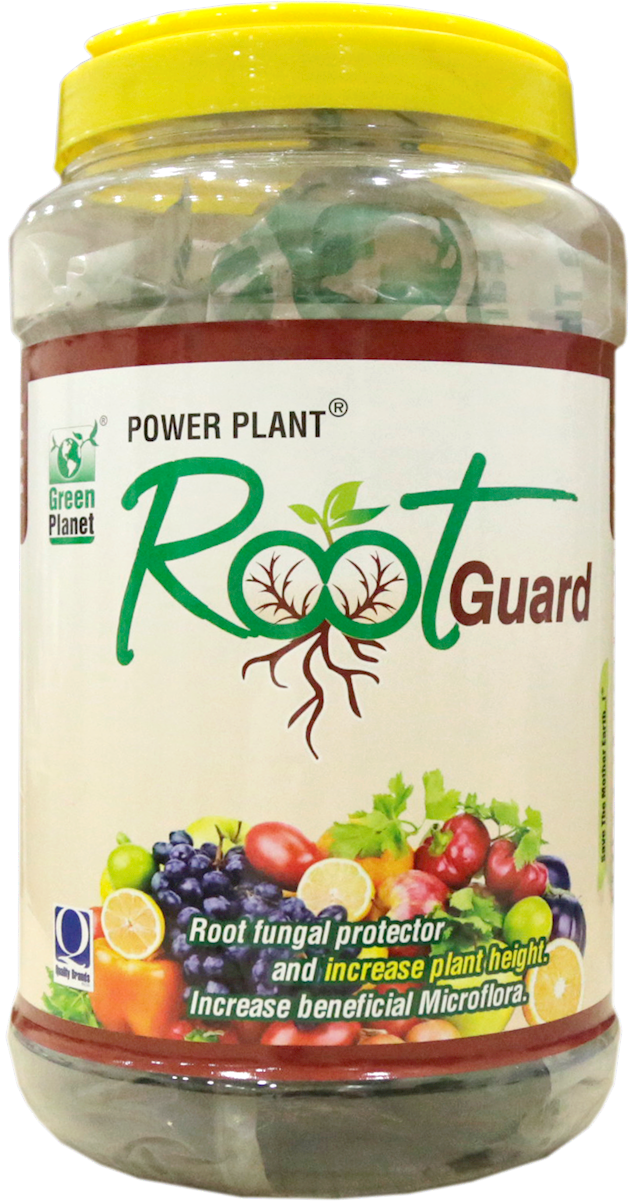 |
HOW TO USE IT?
Use Bhoomi power by following methods.
1. By broadcasting over the field.
2. Use in slurry.
3. Give it in cow dung.
4. you can also give it in dry soil.
Note: Repeat Bhoomi power and Root guard every 3 months.
1. DEFICIENCY OF NITROGEN
TREATMENT
|
Use NITROKING 2-3 ml per litre of water |
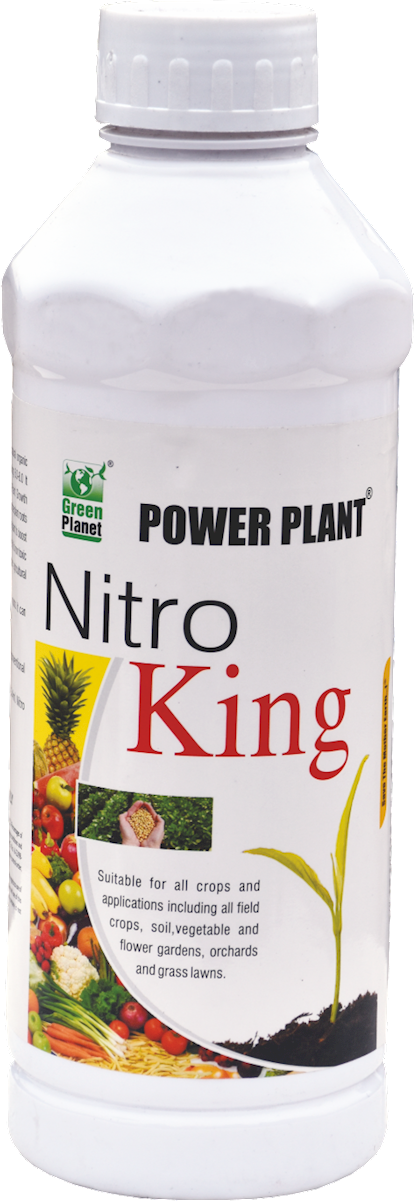 |
|
Use SPALL90 0.5 ml per litre of water |
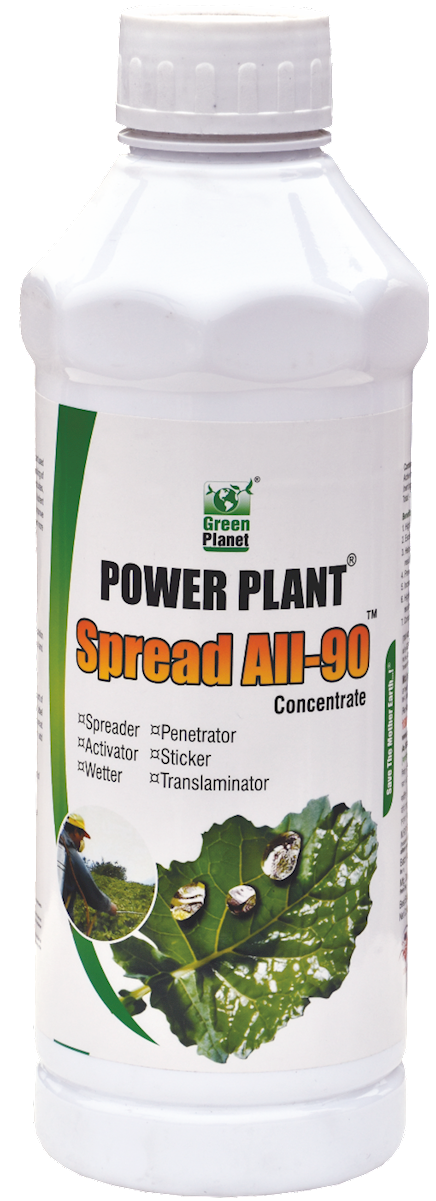 |
2. DEFICIENCY OF PHOSPHORUS
TREATMENT
|
Use NITROKING 2-3 ml per litre of water |
 |
|
Use SPALL90 0.5 ml per litre of water |
 |
3. DEFICIENCY OF POTASSIUM
TREATMENT
|
Use NITROKING 2-3 ml per litre of water |
 |
|
Use SPALL90 0.5 ml per litre of water |
 |
4. DEFICIENCY OF IRON
TREATMENT
|
Use Ferric EDTA 0.5-01 gm per litre of water |
.png) |
|
Use Grow 2 ml per litre of water |
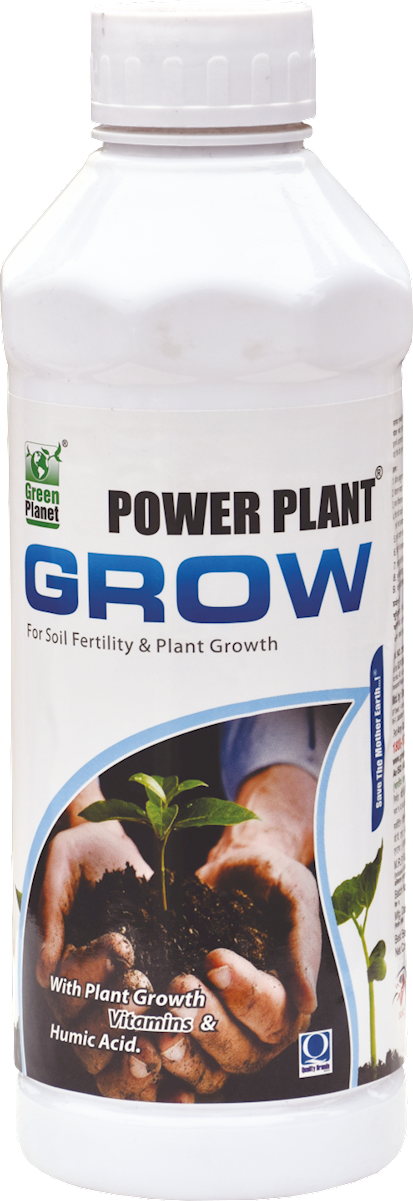 |
|
Use SPALL90 0.5 ml per litre of water |
 |
5. DEFICIENCY OF MAGNESIUM
TREATMENT
|
Use Grow 2 ml per litre of water |
 |
|
Use SPALL90 0.5 ml per litre of water |
 |
A. FUNGAL DISEASES
(i) CONTACT BASED
1. ANTHRACANOSE STEM BLIGHT
TREATMENT
|
Use PPFC 2-3 gm per litre of water |
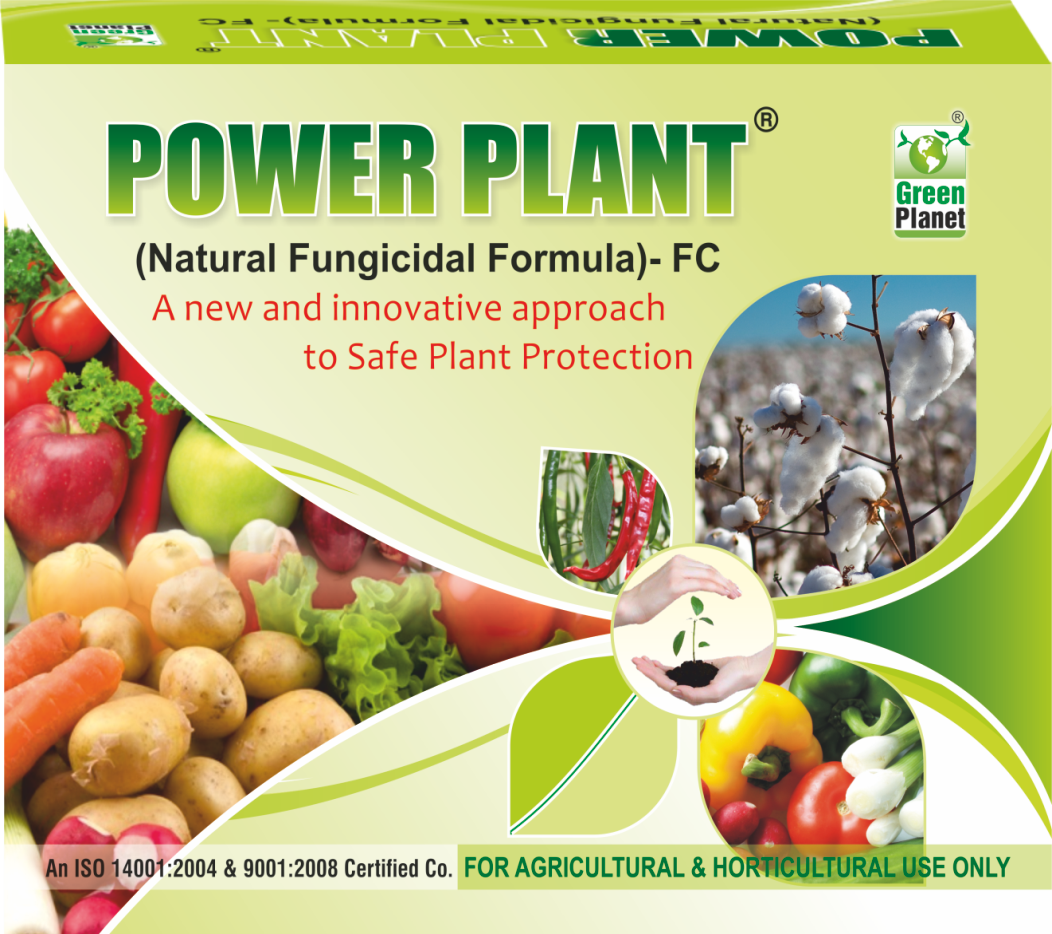 |
|
Use SpAll90 0.5 ml per litre of water |
 |
2. CERCOSPORA LEAF BLIGHT
TREATMENT
|
Use PPFC 2-3 gm per litre of water |
 |
|
Use SpAll90 0.5 ml per litre of water |
 |
3. DOWNY MILDEW
TREATMENT
|
Use PPFC 2-3 gm per litre of water |
 |
|
Use SpAll90 0.5 ml per litre of water |
 |
4. WHITE MOLD
TREATMENT
|
Use PPFC 2-3 gm per litre of water |
 |
|
Use SpAll90 0.5 ml per litre of water |
 |
(i) SYSTEMIC BASED
1. ROOT ROT
TREATMENT :
|
Use Fungohit 2-3ml per litre of water |
 |
|
Use SpAll90 0.5 ml per litre of water |
 |
2. CYST NEMATODES
TREATMENT :
|
Use Fungohit 2-3ml per litre of water |
 |
|
Use SpAll90 0.5 ml per litre of water |
 |
3. STEM CANKER
TREATMENT :
|
Use Fungohit 2-3ml per litre of water |
 |
|
Use SpAll90 0.5 ml per litre of water |
 |
4. CHARCOAL ROT
TREATMENT :
|
Use Fungohit 2-3ml per litre of water |
 |
|
Use SpAll90 0.5 ml per litre of water |
 |
5. SEPTOSPORA BROWN SPOT
TREATMENT :
|
Use Fungohit 2-3ml per litre of water |
 |
|
Use SpAll90 0.5 ml per litre of water |
 |
B. VIRAL DISEASES
1. Soybean Dwarf Virus (SbDV)
TREATMENT :
|
Use Virohit 2-3 ml per litre of water |
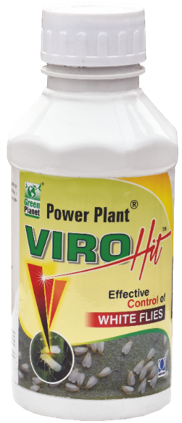 |
|
Use virosol 2-3 ml per litre of water |
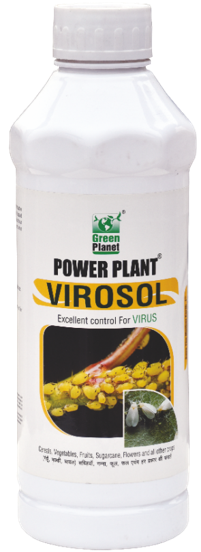 |
|
Use PPNP 1 ml per litre of water |
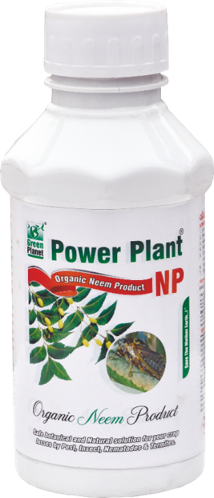 |
|
Use SpAll90 0.5 ml per litre of water |
 |
C. PESTS
(i)CHEWING PESTS
1.SAW FLY (Cephus cinctus)
TREATMENT :
|
Use Pestohit 2-3 ml per litre of water |
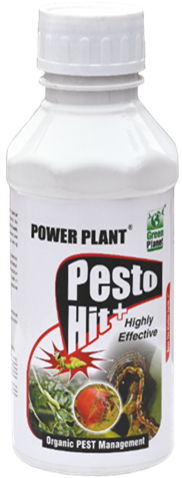 |
|
Use PPNP 1 ml per litre of water |
 |
|
Use SpAll90 0.5 ml per litre of water |
 |
2.WIREWORM (Conoderus rudis)
TREATMENT :
|
Use Pestohit 2-3 ml per litre of water |
 |
|
Use PPNP 1 ml per litre of water |
 |
|
Use SpAll90 0.5 ml per litre of water |
 |
3.ARMYWORM (Spodoptera frugiperda)
TREATMENT :
|
Use Pestohit 2-3 ml per litre of water |
 |
|
Use PPNP 1 ml per litre of water |
 |
|
Use SpAll90 0.5 ml per litre of water |
 |
TREATMENT :
|
Use Pestohit 2-3 ml per litre of water |
 |
|
Use PPNP 1 ml per litre of water |
 |
|
Use SpAll90 0.5 ml per litre of water |
 |
(ii) SUCKING PESTS
1. APHID (Diuraphis noxia)
TREATMENT :
|
Use Orgomite 2-3 ml per litre of water |
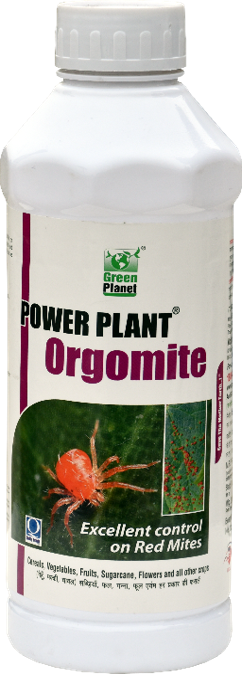 |
|
Use PPNP 1 ml per litre of water |
 |
|
Use SpAll90 0.5 ml per litre of water |
 |
2.THRIPS (Helicothrips tritici)
TREATMENT :
|
Use Orgomite 2-3 ml per litre of water |
 |
|
Use PPNP 1 ml per litre of water |
 |
|
Use SpAll90 0.5 ml per litre of water |
 |
3.MITES (Eriophye tulipae)
TREATMENT :
|
Use Orgomite 2-3 ml per litre of water |
 |
|
Use PPNP 1 ml per litre of water |
 |
|
Use SpAll90 0.5 ml per litre of water |
 |



